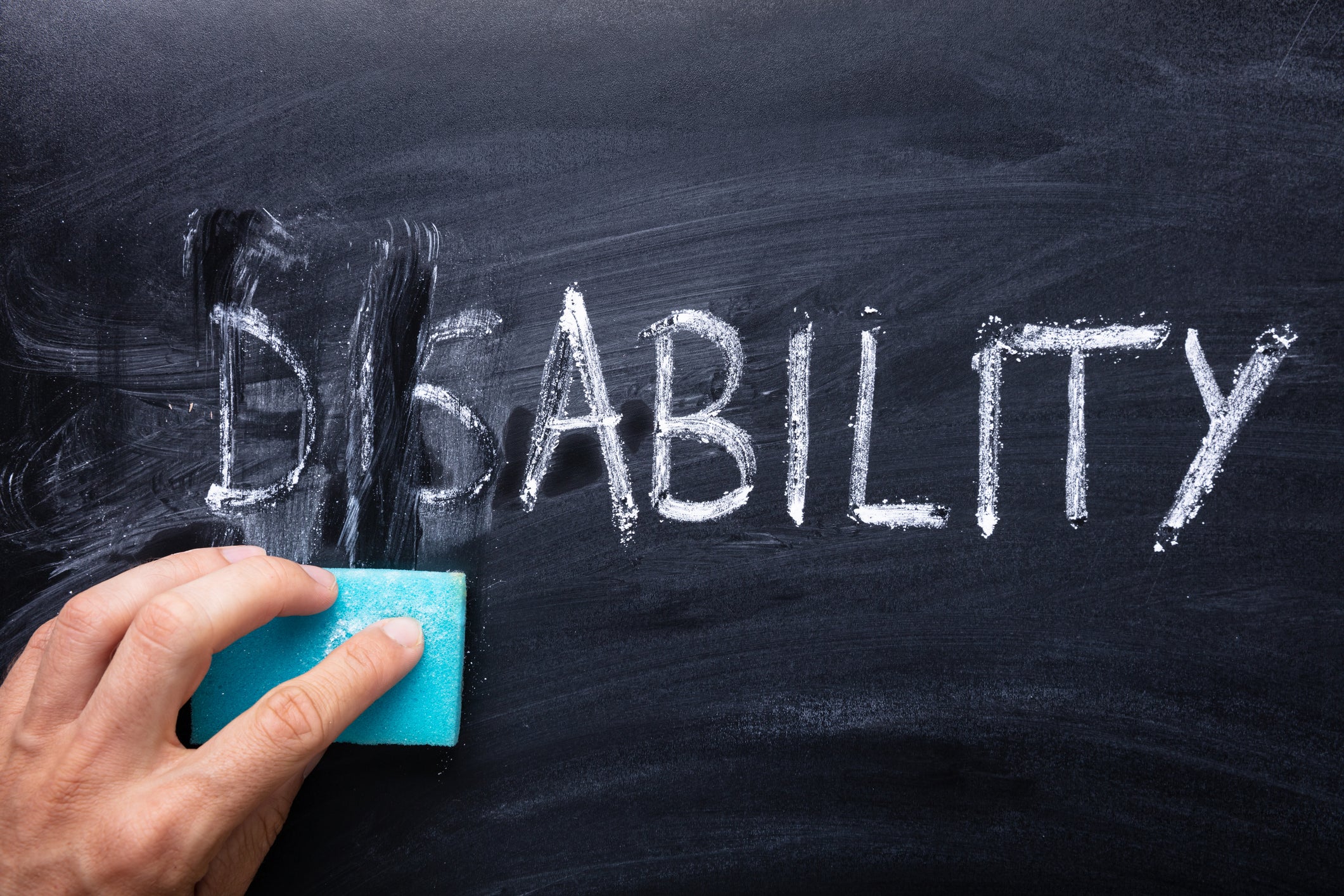New lockdown restrictions are forcing disabled people to make a choice between health and career
Under the latest lockdown rules, the clinically vulnerable will not be made to shield. This might sound like a good thing but it actually puts pressure on us to jeopardise our safety or risk losing our jobs


One key part of Boris Johnson’s lockdown announcement was easy to miss, as it was only briefly mentioned, then pushed to the bottom of the guidelines: the clinically vulnerable will not be made to shield.
This might sound like a good thing. In fact, for those disabled and chronically ill people who can’t work from home, it is anything but. They now have no safeguard protecting them and will be forced to go to work. Many of us will have to choose between our health and our careers.
As a freelance journalist, I’m lucky to be able to work from home, but so many of my community can’t. I was hoping there would be some sort of provision for those who can’t work from home when the full guidelines were published. I was not surprised, however, when the extent of it was as follows: “If you cannot work from home, you are advised not to go to work and may be eligible for Statutory Sick Pay (SSP) or Employment Support Allowance (ESA). You are encouraged to stay at home as much as possible, but are encouraged to go outside for exercise.”
There are many issues here. The first is that instead of being supportive of disabled people and understanding their worries, this statement puts the pressure on vulnerable people to take their safety into their own hands, when many can’t afford to make this choice. A survey by YouGov found that 51 per cent of disabled workers are concerned about going back to work, but need to get paid. Just 14 per cent feel safe, and 41 per cent feel anxious about going into their workplace.
Instead of providing financial support, the government is advising that vulnerable people take sick pay, which is hard to stay on for an extended period of time and can give the impression that, despite very real concerns, the person just doesn’t want to work. The same YouGov survey also found that a third of disabled workers (34 per cent) felt under pressure to go back to the workplace – with employers and the government cited as the main sources of this pressure.
Most insulting is the government’s suggestion that disabled and chronically ill people can just casually go on ESA, a benefit you qualify for when out of employment. The government is actually telling members of my community to quit their jobs.
The application system for disability benefits is notoriously hard, with complicated forms and strict assessments that don’t leave space for nuance and the vast range of abilities within each disability and condition. If you don’t fit into their narrow boxes, you’re found fit for work and all payments are stopped, leaving you both unemployed and with no money coming in.
In September, Scope led a coalition of campaigners who signed an open letter to the prime minister, calling for urgent action to prioritise the needs of the UK’s 14 million disabled people, who have been among the hardest hit by the coronavirus pandemic but largely forgotten. The charity was calling for a new deal for disabled people to show they won't be forgotten in the government's recovery plan and beyond.
James Taylor, executive director of strategy, impact and social change at Scope, said: “Coronavirus has been a catastrophe for disability equality. The government and employers must act now to stop disabled people bearing the brunt of this crisis. We’re urging the government to put a system in place which ensures nobody is forced to choose between protecting their health and keeping their job."
Considering just 53.63 per cent of 16-64 year olds with a disability are in work, compared to 81.7 per cent of people with no disabilities, you’d think the government would be encouraging more disabled people into work, not out of it.
The pandemic has shown how the government really feels about disabled people – unless we agree to be locked up and don’t make a fuss, we are expendable. Nobody should have to choose between their job and their life, but when the government won’t support us, disabled people are having to do just that.
Join our commenting forum
Join thought-provoking conversations, follow other Independent readers and see their replies
Comments
Bookmark popover
Removed from bookmarks